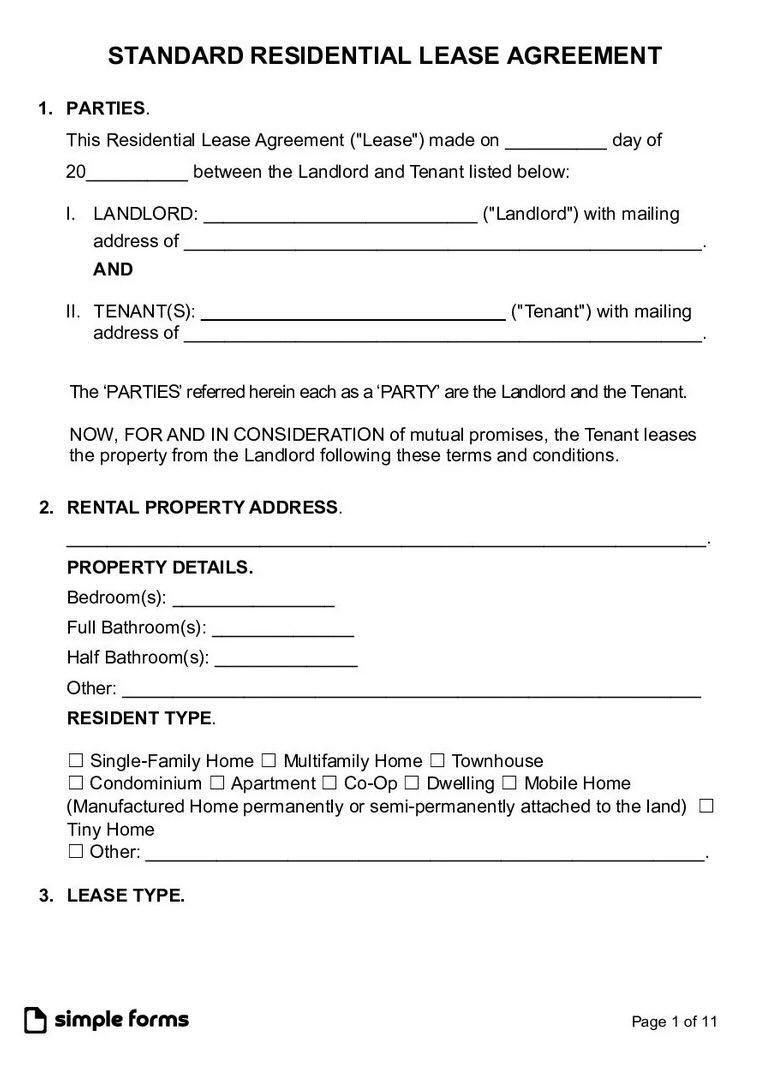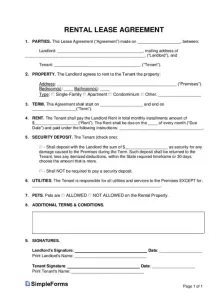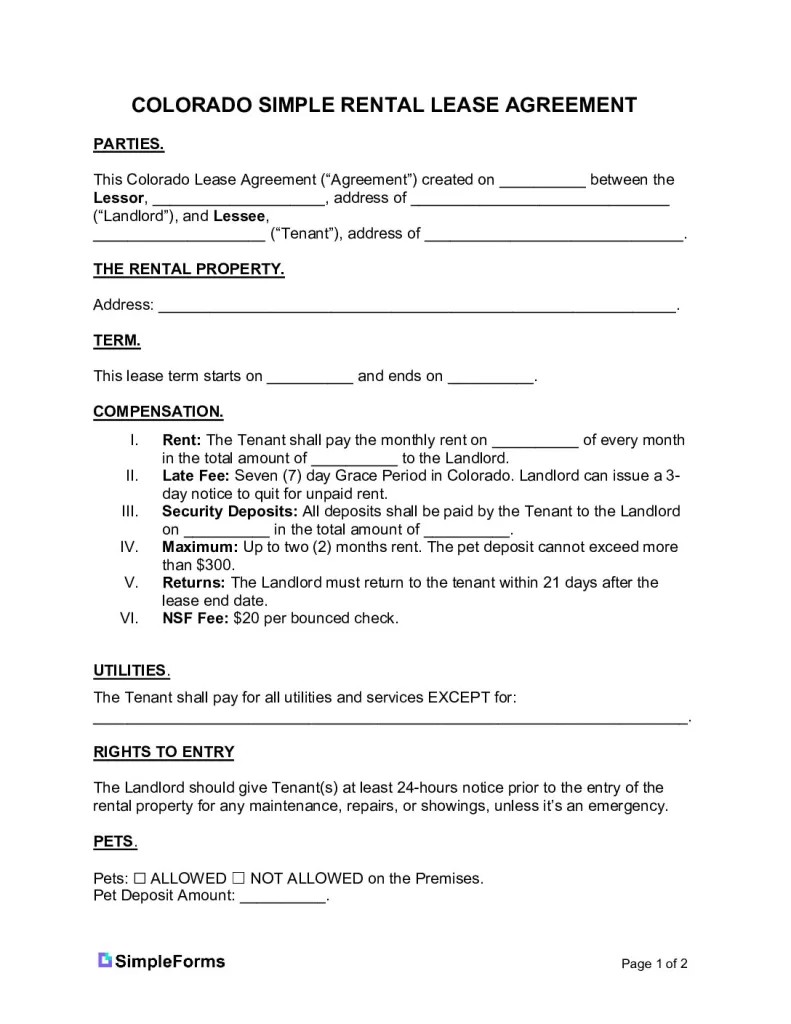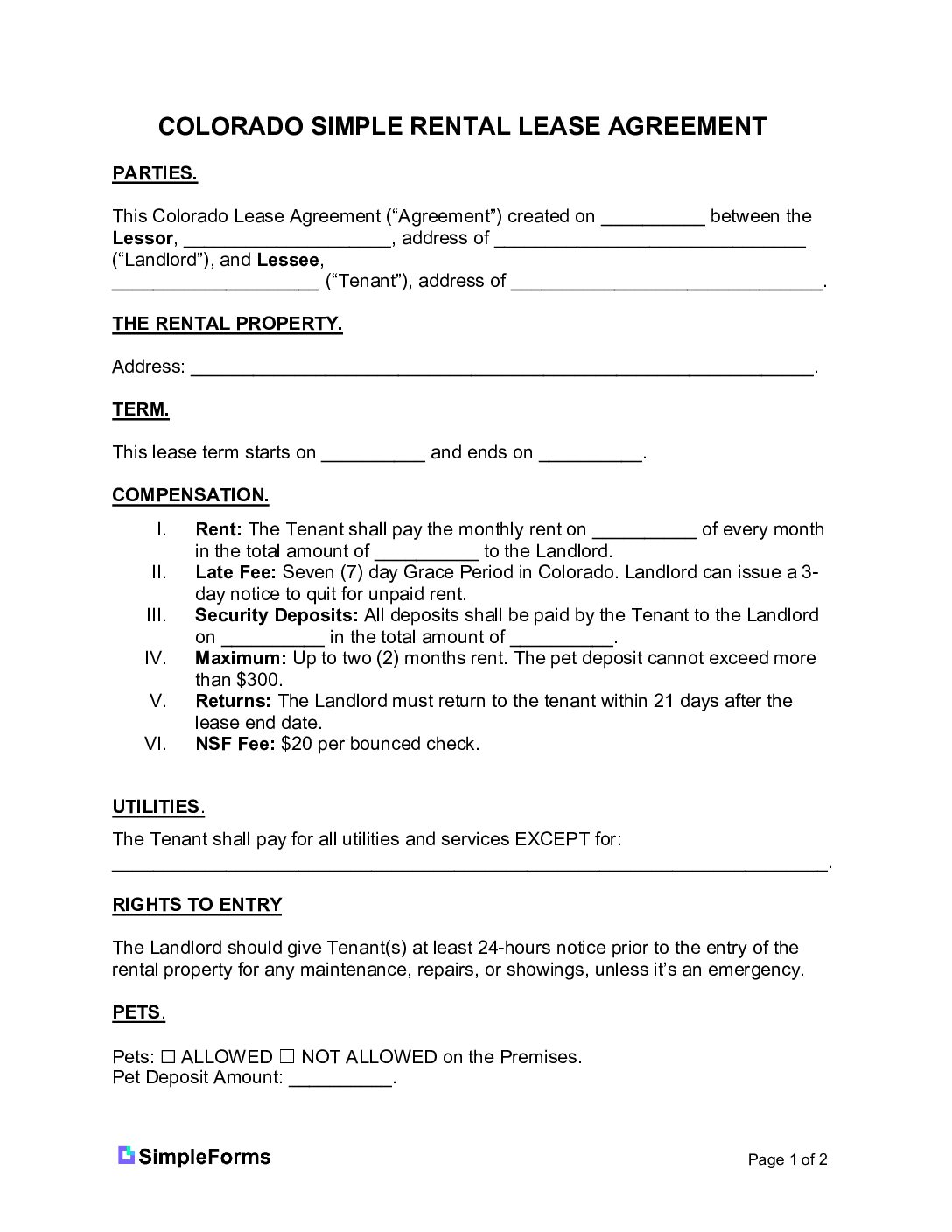A Colorado lease agreement is a contract for renting property. Landlords should obtain the tenant’s personal information to run a credit and background check to verify their ability to pay rent.
Options By Type
 Standard Residential Lease Agreement Standard Residential Lease Agreement
Download: PDF |
 Simple (1-Page) Lease Agreement Simple (1-Page) Lease Agreement
Download: PDF |
Most Recent US Home Facts
- Population (2023): 334,914,895
- Median Households (2022): 125,736,353
- Median Household Income (2022): $75,149
- Owner-occupied Households (2022): 64.8%
Source: U.S. Census Bureau
Must Include These Key Elements
Disclosures
Lead-Based Paint Disclosure Form – Any housing structure built before 1978 requires Lead Paint Disclosure under federal law.
Radon Disclosure Form – Landlords in Colorado must comply with the Radon Disclosure law. They are required to reveal any information they have regarding radon concentrations at the property and issue a warning statement to potential tenants about the dangers of radon. Additionally, landlords must provide Tenants with a copy of the brochure on radon and real estate from the Department of Health & Environment.
Source: C.R.S. § 38-12-803
Security Deposits
Maximum – The maximum amount of security deposit that a landlord can charge in Colorado is an amount that is equal to or less than two month’s rent.
Return – The landlord must return the security deposit within one (1) month. However, if the lease agreement outlines a specific deadline for the return of the security deposit, the landlord must adhere to such a deadline, which cannot exceed sixty days.
Return after Termination – In cases where the lease has been terminated as a result of hazardous conditions arising from gas equipment, the tenant is entitled to receive their security deposit within a maximum of seventy-two (72) hours. It is important to note that landlords must strictly comply with these legal requirements, and failure to do so may result in legal repercussions.
Source: C.R.S. § 38-12-102.5
Landlord Access
- In the state of Colorado, landlords are not obligated to furnish tenants with prior notice before entering their premises. However, it is highly recommended that landlords provide a notice period of 24 to 48 hours in advance of non-emergency entry.
- Landlords do not need to notify Tenants if the access is for Bed Bug Fumigation.
Paying Rent
Grace Period – In the state of Colorado, lessees are granted a seven (7) day grace period for tardy rental payments. Property owners are prohibited from imposing any fees or penalties on rental payments until the eighth (8th) day. If the tenant fails to remit payment by the conclusion of the grace period, the landlord may issue a ten-day notice to vacate.
Written Disclosure – Colorado landlords or their agents can charge late fees if disclosed on the lease.
Maximum Penalty – Landlords may charge a late fee of $50 or 5% of past due rent, whichever is greater, as the maximum penalty.
NSF Fee – $20 per bounced check.
Source: C.R.S. § 38-12-105(a), C.R.S. § 38-12-105(1)(c), C.R.S. § 38-12-105(1)
FAQs
- How to break a lease in Colorado? Give the other party proper notice, pay the associated fees and/or penalties and find new Tenant.
- How to evict a Tenant in Colorado? Must provide written notice. If the Tenant refuses to leave then the Landlord must file legally through the Colorado Judicial Branch.
- How to get a real estate license in Colorado? Complete the sales agent courses, pass exam and any other requirements by the Colorado Real Estate Commission.
- When can you file Colorado state taxes 2024? April 15th.
- Does Colorado have state income taxes? Yes.
- Is Colorado a 50/50 divorce state? No. Colorado marital property is divided fairly but not always equally because Colorado follows equitable distribution laws.
- Where is Colorado State University? Fort Collins, Colorado.
- Where to vacation in Colorado? There are many places to vacation in Colorado. The most popular destinations include Denver, Boulder, Aspen, Breckenridge, Colorado Springs. Rocky Mountain National Park, Telluride and Vail.
- Where is my Colorado refund? Check the status of your refund with the Colorado Department of Revenue.
- What a landlord cannot do in Colorado? Landlords cannot discriminate against Tenants, enter rental properties without prior notice and/or retaliate against Tenants.
- Must visit places in Colorado? The top must-see places in Colorado include the Great Sand Dunes National Park and the Colorado Railroad Museum.
Colorado Real Estate Commission
For any other questions you may have, refer to the Colorado Division of Real Estate website.

